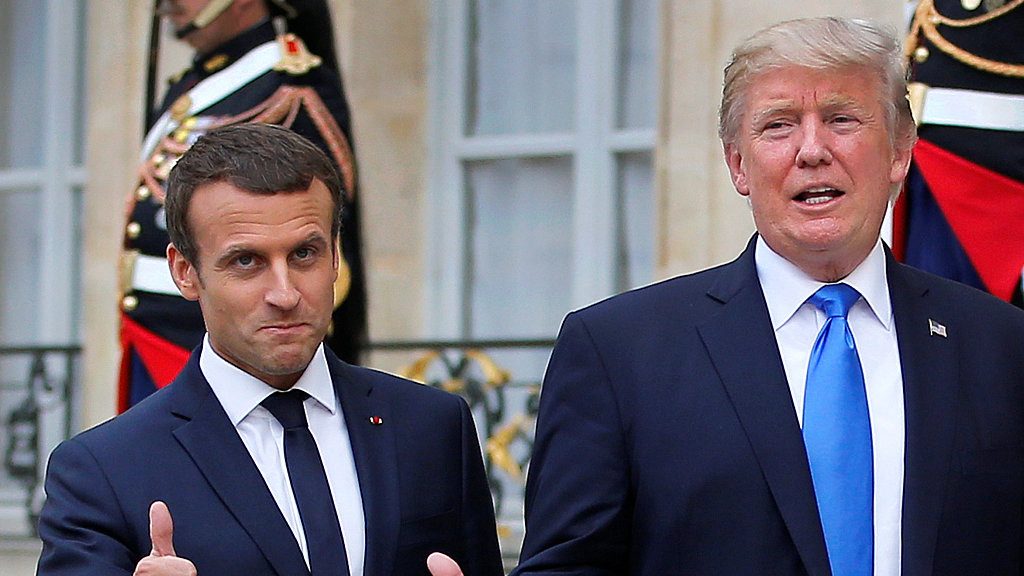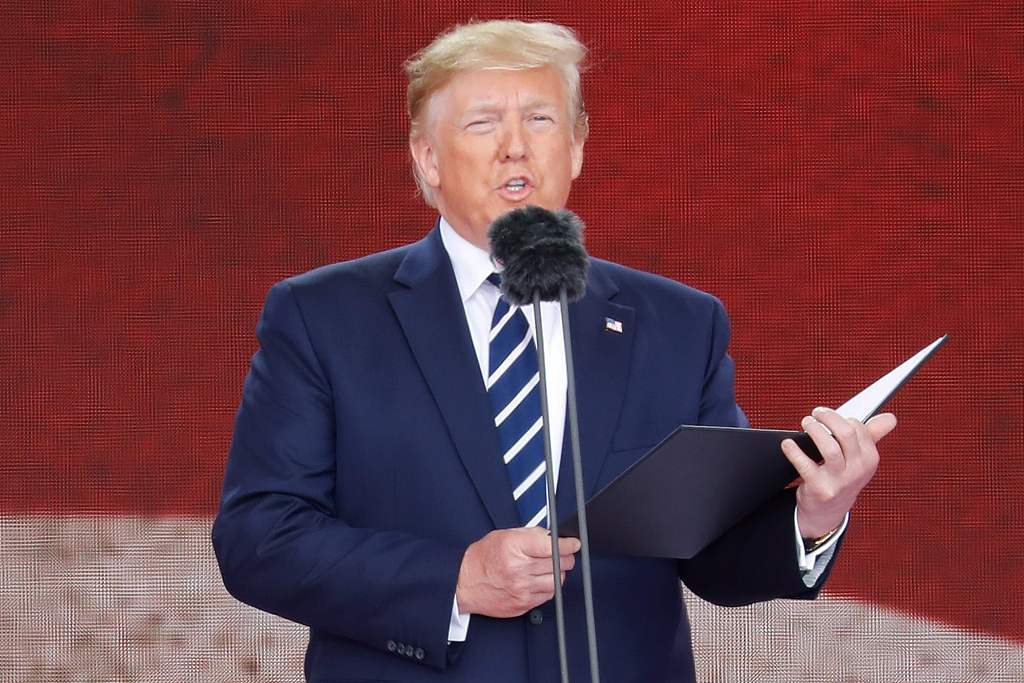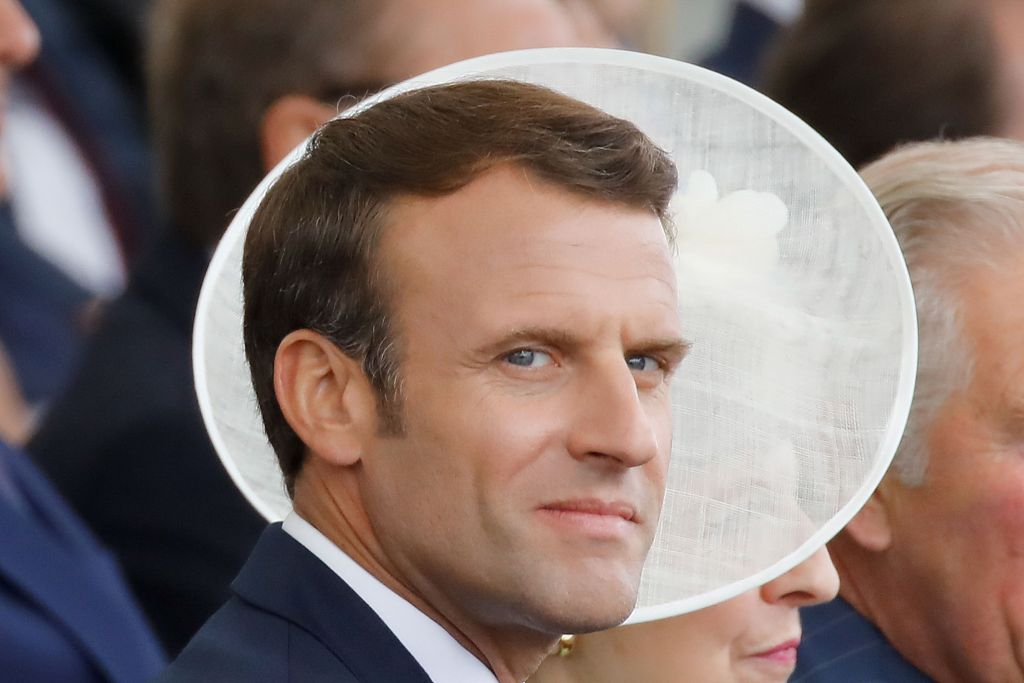
Opinion
09:57, 06-Jun-2019
Will the U.S. keep intimacy with France?
Wang Shuo

Editor's note: Wang Shuo is the deputy director and research professor at the Institute for European Studies at the China Institutes of Contemporary International Relations (CICIR). The article reflects the author's views, and not necessarily those of CGTN.
On June 6, U.S. President Donald Trump visited France to participate in the Normandy landing commemoration at the invitation of French President Emmanuel Macron. Seventy-five years ago, brave American soldiers liberated European people from the haze of the Nazis. The United States has since then become a savior in the eyes of Europeans, which has also laid the foundation for the post-war alliance. However, no matter how France and the United States show their intimacy, the rift of the transatlantic relationship is still there because some of the Trump administration's practices have seriously touched the bottom line of Europe and France.
The first step is to advocate populism and split and weaken the European Union. After Trump took power, contrary to previous policy practices, he praised Brexit and urged EU member states to follow the example of Britain. When he visited the United Kingdom a few days ago, he even issued a warning. If the EU refuses to meet the British requirements, the United Kingdom should leave the European Union this year without agreement. U.S. Secretary of State Pompeo frequently visited Europe to mobilize the contradictions between western and eastern European countries.

U.S. President Donald Trump speaks during an event to commemorate the 75th anniversary of the D-Day landings, in Portsmouth, UK, June 5, 2019. /VCG Photo
U.S. President Donald Trump speaks during an event to commemorate the 75th anniversary of the D-Day landings, in Portsmouth, UK, June 5, 2019. /VCG Photo
For example, he went to Poland to hold an international conference on the Middle East issue. Former White House chief strategic adviser Steve Bannon was also in Paris to intervene in the European Parliament elections held last month, actively supporting the far-right populist parties, which undoubtedly runs counter to the efforts of Macron. French Prime Minister Edouard Philippe warned that "Bannon as a Trump agent, in an attempt to weaken and split the unity among European countries, has greatly harmed European interests."
Second is to emphasize the priority of the United States and force the European Union to make concessions on an economic issue. Trump overthrew the TTIP promoted by former U.S. President Barack Obama. He imposed a tariff on steel and aluminum to the EU and forced the EU to further open its market to the United States. For this reason, European Commission President Jean-Claude Juncker had to visit the United States and put forward the so-called "three zeros" idea in exchange for the temporary exemption. However, Trump still insists on "America First," stubborn opinions, disregarding the tacit understanding that the two sides have reached, and repeatedly reversing. Trump even told Macron that if France leaves the EU, the United States will provide a "more favorable bilateral trade agreement."
Recently, EU Trade Commissioner Cecilia Malmstrom warned member trade ministers that they needed to prepare for Trump to impose tariffs on billions of euros worth of European goods. What the United States does is contrary to the principle of free trade that the EU has always adhered to, which has caused a huge negative impact on the close economic and trade relations between the two sides. Of course, Macron will not sacrifice the interests of French farmers to satisfy Trump.

French President Emmanuel Macron attends an event to commemorate the 75th anniversary of the D-Day landings, in Portsmouth, UK, June 5, 2019. /VCG Photo
French President Emmanuel Macron attends an event to commemorate the 75th anniversary of the D-Day landings, in Portsmouth, UK, June 5, 2019. /VCG Photo
The third is sticking to the unilateral position and challenging the multilateralism that Europe holds. Trump withdrew from the Paris Climate Agreement that France strongly promoted, overthrew the Iranian nuclear agreement signed by several parties and unilaterally increased sanctions against Iran, and withdrew from the Intermediate-Range Nuclear Forces Treaty, which not only made Europe lose face, but also threatened its own security. Especially on the NATO issue, Trump accused the EU's NATO member states of insufficient investment on defense which accounted for the cheapness of the United States. The EU believes that the U.S. is no longer reliable and the bloc must accelerate its own defense integration. Meanwhile, the United States is still clamoring for the threat of China and Russia, demanding the EU to sacrifice its own interests and choose the right side to stand for the United States. This is undoubtedly unacceptable to the EU and France.
When Macron visited the United States last year, Trump gave him a warm welcome. It seemed that the relationship between France and the United States had been repaired. But this was just a show and Trump did not care or accept proposals from Macron. Of course, Macron also criticized Trump's practices on many occasions, which directly led to the exit of Trump on the 100th anniversary of World War I in Paris. This time, Trump comes again, but the atmosphere is not better than last year. After all, in the eyes of Europeans, the United States has become a friend worse than the enemy. So the friendship between France and the United States seems breakable.
(If you want to contribute and have specific expertise, please contact us at opinions@cgtn.com.)

SITEMAP
Copyright © 2018 CGTN. Beijing ICP prepared NO.16065310-3
Copyright © 2018 CGTN. Beijing ICP prepared NO.16065310-3